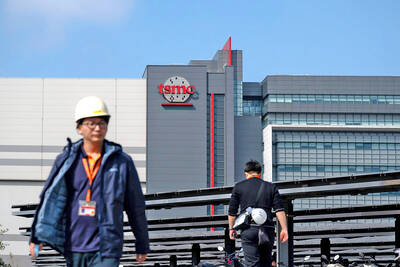Singapore yesterday announced a S$1.5 billion (US$1.1 billion) package to shield lower-income households from surging costs of living, joining fiscal policymakers globally in blunting the pain of sustained price pressures.
The package, which includes direct payments and household utilities rebates, is targeted at providing relief to the most vulnerable groups, the Singaporean Ministry of Finance said in a statement.
It also consists of assistance to local businesses by way of increased wage credit and steps to support jobs, it said.
“There remains significant uncertainty on how prolonged or deep the challenges ahead will be,” the ministry said.
Singapore is not alone among Asian nations ramping up support, with regional authorities particularly focused on checking sharp gains in food prices.
Malaysia and Indonesia have resorted to export bans on commodities such as palm oil and chicken to keep local prices in check, while Thailand recently extended price caps for essential goods and proposed a profit-sharing arrangement with energy firms to fund fuel subsidies.
In February’s budget, Singaporean Minister of Finance Lawrence Wong (黃循財) announced the country’s third straight budget deficit as the government kept spending taps open to support the economy’s recovery from the COVID-19 shock.
Officials expect the total draw on Singapore’s reserves for COVID-19 pandemic aid to amount to S$42.9 billion over three fiscal years.
The package announced yesterday is to be funded using last year’s better-than-expected fiscal revenue, the ministry said, adding that there would be no further draw on past reserves.
The trade-reliant business hub has been particularly vulnerable to food and energy price surges caused by COVID-19-induced supply bottlenecks and Russia’s war in Ukraine.
The core inflation print for last month, to be announced tomorrow, is expected to surge further from a decade-high 3.3 percent in April, a Bloomberg survey said.
Singapore’s central bank expects core inflation to surge further over the coming months, with its most recent forecast predicting that core figures would average between 2.5 and 3.5 percent this year.
All-items price rises are expected to be between 4.5 and 5.5 percent.
The Monetary Authority of Singapore, which seeks to dampen imported inflation by bolstering the country’s currency settings against a basket of its top trading partners, has opted to tighten monetary policy settings three times in the past eight months, including a surprise move in January.
The measures announced yesterday stopped short of direct market intervention.
The ministry said that they are designed to “not distort price signals, as these are needed to guide our economic restructuring and transformation.”

Apple Inc has closed in on an agreement with OpenAI to use the start-up’s technology on the iPhone, part of a broader push to bring artificial intelligence (AI) features to its devices, people familiar with the matter said. The two sides have been finalizing terms for a pact to use ChatGPT features in Apple’s iOS 18, the next iPhone operating system, said the people, who asked not to be identified because the situation is private. Apple also has held talks with Alphabet Inc’s Google about licensing its Gemini chatbot. Those discussions have not led to an agreement, but are ongoing. An OpenAI

INSATIABLE: Almost all AI innovators are working with the chipmaker to address the rapidly growing AI-related demand for energy-efficient computing power, the CEO said Taiwan Semiconductor Manufacturing Co (TSMC, 台積電) yesterday reported about 60 percent annual growth in revenue for last month, benefiting from rapidly growing demand for artificial intelligence (AI) and high-performance computing applications. Revenue last month expanded to NT$236.02 billion (US$7.28 billion), compared with NT$147.9 billion in April last year, the second-highest level in company history, TSMC said in a statement. On a monthly basis, revenue surged 20.9 percent, from NT$195.21 billion in March. As AI-related applications continue to show strong growth, TSMC expects revenue to expand about 27.6 percent year-on-year during the current quarter to between US$19.6 billion and US$20.4 billion. That would

‘FULL SUPPORT’: Kumamoto Governor Takashi Kimura said he hopes more companies would settle in the prefecture to create an area similar to Taiwan’s Hsinchu Science Park The newly elected governor of Japan’s Kumamoto Prefecture said he is ready to ensure wide-ranging support to woo Taiwan Semiconductor Manufacturing Co (TSMC, 台積電) to build its third Japanese chip factory there. Concerns of groundwater shortages when TSMC’s two plants begin operations in the prefecture’s Kikuyo have spurred discussions about the possibility of tapping unused dam water, Kumamoto Governor Takashi Kimura said in an interview on Saturday. While Kimura said talks about a third plant have yet to occur, Bloomberg had reported TSMC is already considering its third Japanese fab — also in Kumamoto — which would make more advanced chips. “We are

Huawei Technologies Co’s (華為) latest high-end smartphone features more Chinese suppliers, including a new flash memory chip and an improved chip processor, a teardown analysis showed, pointing to the progress China is making toward technology self-sufficiency. The inside of Huawei’s Pura 70 Pro was examined by online tech repair company iFixit and consultancy TechSearch International, finding components made by Chinese suppliers. The firms also found that the Pura 70 phones run on an advanced processing chipset made by Chinese chip foundry Semiconductor Manufacturing International Corp (SMIC, 中芯) called the Kirin 9010, which is likely a slightly improved version of the advanced chip